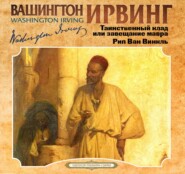По всем вопросам обращайтесь на: info@litportal.ru
(©) 2003-2024.
✖
The Student's Life of Washington; Condensed from the Larger Work of Washington Irving
Настройки чтения
Размер шрифта
Высота строк
Поля
3
Israel Putnam was a soldier of native growth. He had served at Louisburg, Fort Duquesne, and Crown Point; had signalized himself in Indian warfare: been captured by the savages, tortured, and rescued from the stake at the eleventh hour. Since the peace he had resided on his farm at Pomfret, in Connecticut.
4
Nathaniel Greene was born in Rhode Island in May, 1742; was the son of Quaker parents; in his boyhood aided his father on a farm and in a mill, but having a thirst for knowledge applied himself sedulously to various studies. Public affairs had aroused his martial spirit and he had applied himself to military studies. In the month of May he had been elected commander of the Rhode Island contingent.
5
In after years distinguished as a historical painter.
6
Richard Montgomery was born in the north of Ireland in 1736. He entered the army at eighteen years of age; served in the French war with gallantry; afterward returned to England. About three years before the Revolution he sold his commission and emigrated to New York, where he married a daughter of Judge Robert R. Livingston.
7
Iron balls, with four sharp points, to wound the feet of men or horses.
8
Hamilton was a native of the island of Nevis, in the West Indies. At an early age he was put in a counting house, but his nature was aspiring, and he devoted his leisure hours to study. Some early achievements of his pen gave such proof of talent that it was determined to give him the advantage of a regular education, and he was sent to King's (now Columbia) College at New York.
9
That of General George Clinton.
10
Colonel Reed, in a letter to General Lee, at this juncture had allowed himself, notwithstanding the devotion he had hitherto manifested for the commander-in-chief, to express himself with great critical freedom on the loss of Fort Lee. After alluding to the fact that Washington's own judgment was averse to the attempt of holding the fort, but that Greene's advice to the contrary had kept his mind in a state of suspense, he exclaims, "Oh, general! an indecisive mind is one of the greatest misfortunes that can befall an army; how often have I lamented it this campaign." Some days later a letter from General Lee came to head-quarters addressed to Colonel Reed, who at the time was absent. Washington supposing it to be on official business, opened it, as he was in the habit of doing on like occasions. To his surprise he discovered it to be a private note, the tenor of which indicated that he was the subject of critical correspondence between a member of his military family and one of his generals. He immediately enclosed the letter to Colonel Reed, explaining how it had been opened, but without further comment. Reed endeavored to explain away the remarks in Lee's letter; but Washington's affectionate confidence in him as a sympathizing friend had received a severe wound. Reed deeply grieved over the error he had committed, and his earnest appeals to Washington at a later date, restored, in a great measure, their relations of friendly confidence.
11
These restrictions led to ill-humor among the Indians who soon announced their intention of returning home, unless the restraints imposed by Burgoyne were withdrawn. Burgoyne was greatly embarrassed. The Indian force was valuable and obtained at an immense expense. But to his great credit he refused their demands, and the result was that the greater part of his Indian allies deserted him.
12
Lady Ackland afterward applied to General Burgoyne for permission to pass to the American camp, and obtain General Gates' consent to join her husband. It was granted, and the American general, according to Burgoyne, received her "with all the humanity and respect that her rank, her merits, and her fortune deserved."
13
[The Conway letter proved a further source of trouble to the cabal. Wilkinson learning that Gates had denounced him as the betrayer of the letter, and spoken of him in the grossest language, wrote to Gates demanding honorable reparation. They met, however, and the explanations of Gates appeased Wilkinson for the time, who now turned to Lord Stirling as the betrayer of his confidence, asserting that he should "bleed for his conduct." But in this case, as in the other, Wilkinson's irritable honor was easily pacified. Lord Stirling having admitted, according to Wilkinson's request, that the disclosure in question "occurred in a private company during a convivial hour." Subsequently Wilkinson was shown, by Washington, Gates' letter, in which the extract from Conway's letter was pronounced a forgery. Wilkinson, who was secretary of the Board of War, of which Gates was president, now resigned his office, compelled to it, as he said, "by the acts of treachery and falsehood in which he had detected Major-general Gates." Wilkinson, as bearer of the news of the capture of Burgoyne to Congress, had been rewarded by promotion to the rank of brigadier-general. This was protested against by a large number of colonels, whereupon Wilkinson resigned, and withdrew from the army.
14
Names of the committee – General Reed, Nathaniel Folsom, Francis Dana, Charles Carroll, and Gouverneur Morris.
15
The Highlands had been carefully reconnoitred in the course of the winter by Putnam, Gov. Clinton, James Clinton, and several others, and West Point selected as the most eligible place to be fortified.
16
Conway here disappears from this history. He became involved in a duel with Gen. John Cadwalader, in which he was severely wounded. Upon his recovery from his wounds he embarked for France.
17
Pronounced Hugee – of French Huguenot descent.
18
So called in early times from being ninety-six miles from the principal town of the Cherokee nation.
19
The wife of the Rev. James Caldwell, already alluded to, was in the village at the time, and while sitting on the side of a bed, holding a child by the hand, a musket was discharged in at the window, and the ball striking her in the breast, she fell dead on the floor.
20
Major André was born in London in 1751, but his parents were of Geneva, Switzerland, where he was educated. He was designed for mercantile life, and entered a London counting-house, the sober routine of which, however, was so distasteful to him that he soon abandoned it for the army. An engagement in his eighteenth year to a beautiful girl, Miss Honora Sneyd, which the father of the young lady broke off, is said to have been one cause of this step. He came to America in 1774 as lieutenant of the Royal Fusiliers. His temper was light and festive, and his varied, graceful talents, and his engaging manners rendered him generally popular.
21
The names of the captors were John Paulding, Isaac Van Wart, and David Williams.
22
The fate of the heroic youth here alluded to, deserves a more ample notice. Born in Coventry, Connecticut, June 6th, 1755, he entered Yale College in 1770, and graduated with some distinction in September, 1773. On quitting college he engaged as a teacher, as is common with young men in New England, while studying for a profession. His half-formed purpose was to devote himself to the ministry. He was teaching at New London, when an express arrived, bringing tidings of the outbreak at Lexington. A town meeting was called, and Hale was among the most ardent of the speakers, proposing an instant march to the scene of hostilities, and offering to volunteer.
He served in the army before Boston as a lieutenant; prevailed on his company to extend their term of service by offering them his own pay, and for his good conduct received from Congress the commission of captain. He commanded a company in Colonel Knowlton's regiment in the following year. After the disastrous battle of Long Island, Washington applied to that officer for a competent person to penetrate the enemy's camp, and procure intelligence of their designs. Hale, in the ardor of patriotism, volunteered for the unenviable enterprise, though fully aware of its peril, and the consequences of capture. Assuming his old character as schoolmaster, he crossed the Sound at night from Norwalk to Huntington on Long Island, visited the British encampments unsuspected, made drawings of the enemy's works, and noted down memoranda in Latin of the information he gathered, and then retraced his steps to Huntington, where a boat was to meet him and convey him back to the Connecticut shore. Unfortunately a British guard ship was at that time anchored out of view in the Sound, and had sent a boat on shore for water. Hale mistook it for the expected boat, and did not discover his mistake until he found himself in the hands of enemies. He was stripped and searched, the plans and memoranda were found concealed in the soles of his shoes, and proved him to be a spy. He was conveyed to the guard ship, and thence to New York, where he was landed on the 21st of September, the day of the great fire. He was taken to General Howe's head-quarters, and after brief parley with his judge, ordered for execution the next morning at daybreak. His patriot spirit shone forth in his dying words – "I only regret that I have but one life to lose for my country."
23
The number of prisoners amounted to 7,073, of whom 5,950 were rank and file, six commissioned, and twenty-eight non-commissioned officers and privates, had previously been captured in the two redoubts, or in the sortie of the garrison. The loss sustained by the garrison during the siege, in killed, wounded, and missing, amounted to 552. That of the combined army in killed was about 300. The combined army to which Cornwallis surrendered, was estimated at 16,000, of whom 7,000 were French, 5,500 continentals, and 3,500 militia. —Holmes' Annals.

















